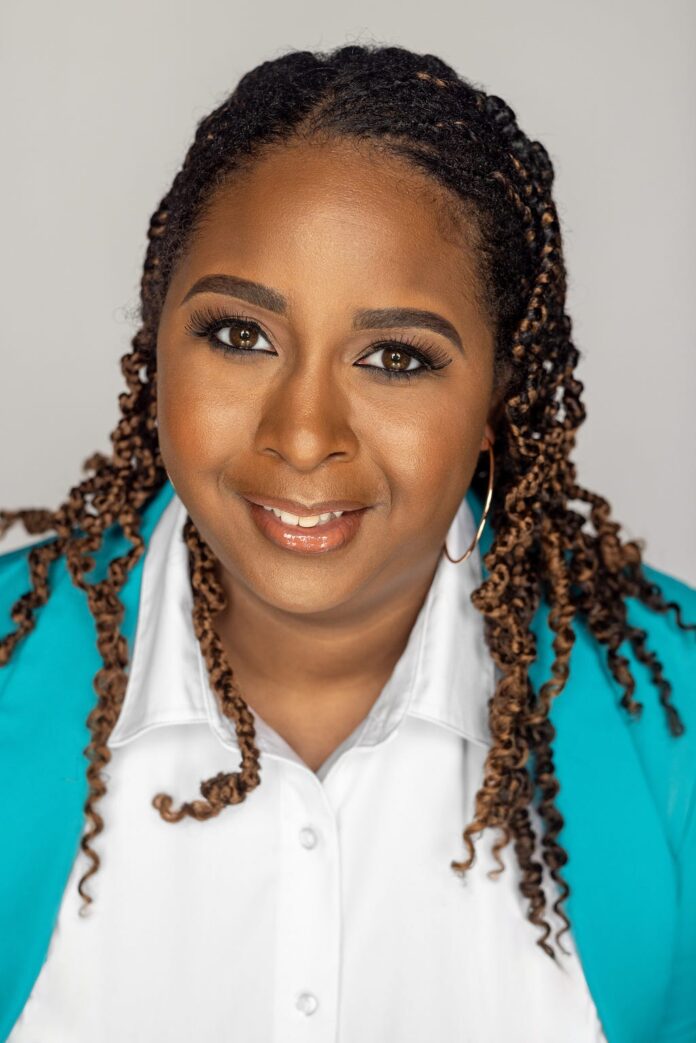Healing A Broken Mental Health System: Whitney Coleman On 5 Things That Can Be Done To Fix Our Broken Mental Health System
An Interview With Stephanie Greer
Address the Social Determinants of (Mental) Health: By addressing underlying systemic issues many people’s mental health would improve drastically due to reduced exposure to traumatic events.
The current state of the mental health system is a conversation that echoes in the halls of policy-making, the corners of social advocacy, and within the private struggles of individuals and families. As we continue to witness an unprecedented need for robust mental health support, the shortcomings of the existing system become more glaring. It is within this backdrop that we seek the insight of those who are at the forefront of behavioral health. In this interview series, we are talking to behavioral health leaders, policymakers, mental health practitioners, advocates, and reformers to share their perspectives on healing our broken mental health system. As a part of this interview series, we had the pleasure of interviewing Whitney Coleman, LICSW, LCSW-C.
Whitney Coleman, LICSW, LCSW-C is a clinical social worker, therapist, author, international speaker, and the founder and CEO of Jade Clinical Services. She serves women of color to help them overcome barriers caused by intruding thoughts, stress, and trauma. Whitney also provides clinical supervision to other social workers and provides consultation to other clinicians.
Thank you so much for joining us in this interview series. Before we start, our readers would love to “get to know you” a bit better. Can you tell us a bit about your background and your childhood backstory?
I grew up the daughter of a disabled but trailblazing politician, in the political capital of the US. So naturally, I eschewed anything relating to politics. I early on developed an interest in social work due to an 8th grade government class. In the 11th grade that interest expanded when I took a child psychology class. I have traveled to over 25 countries and have a variety of interests including making art, languages and linguistics, books, all kinds of music, plants, and animals.
Can you please give us your favorite “Life Lesson Quote”? Can you share how that was relevant to you in your life?
To be yourself in a world that is constantly trying to make you something else is the greatest accomplishment — Ralph Waldo Emerson
This quote is relevant to me because most of my life people have tried to change me into someone different. I like who I am, I like the fact I do not fit stereotypes or molds, and I am content to stay myself.
Let’s now shift to the main part of our discussion. It is often said that “the mental health system in America is broken”. What does that statement mean to you? From your perspective what is “broken” today?
That statement means the system is not working in a way that actually is conducive to helping those who need help and in some ways is causing more harm than good. What is broken is the system is focused on money rather than actually helping people. Those who are providing services want to help, but they also need a way to survive so they get caught in the same money mindset. Additionally, people are forced to do too much work with little compensation and then quit so there are constant shortages of staff.
What about any bright spots? Do you think there are any elements that we get right in today’s world that we wouldn’t want to reverse unintentionally?
There are always bright spots. I think there is more emphasis on inclusive care for those with disabilities and minorities. This means there are people getting services who were not previously able to get them and an increasing number of providers for underserved communities.

In your opinion, what are the 5 most impactful things that could help heal the broken mental health system? These could be on any level including training, workforce, policy, culture, equity etc.
1 . Increase Funding for Government Provided Mental Health Services: Many community mental health agencies are stretched thin, are unable to provide training for their staff, and some are unable to even pay their staff. The services they provide are very basic due to minimal funding being provided and often a large portion of the funds are spent to lure in psychiatrists needed for medication management services.
2 . Increase Provider Reimbursement: Providers are often not paid if clients do not show up for sessions, which frequently happens. Providers are also often not paid for completing their documentation despite spending hours on it each week. Many providers across the country work multiple jobs to make enough to live off of due to not making enough money. Providers become burnt out and decide to leave the field to do something else where they can make more and do less.
3 . Provides Incentives for Mental Wellness Programs in the Workplace: This goes for implementation and actual usage. Many companies have implemented programs so they can say they have them but then keep their staff so busy they cannot take advantage of the programs, penalize staff for utilizing the programs, or only make the programs truly available for managers and above.
4 . Address the Social Determinants of (Mental) Health: By addressing underlying systemic issues many people’s mental health would improve drastically due to reduced exposure to traumatic events.
5 . Require mandatory Cultural Competence Education Across All Sectors in the US: many experience mental health concerns related to cultural or race-related issues and when they receive services, their mental health services are not culturally competent due to a shortage of providers of color, especially male providers of color.
If all of the items on your list were magically implemented tomorrow what change might we see in the world? What are the signs (big and small) that would show us that the system is being healed?
More people would be receiving quality services from providers who have had quality training. The clients would be finding a reduction in symptoms and relief from stressors and the providers would not be leaving the field as much as they have been due to strain. People would be reporting less stress in the workplace due to Social Determinants of (Mental) Health.
What is a project you or others are working on today that gives you hope? How can our readers learn more about this work?
There is not a specific project so much as a movement happening right now. Clinicians are currently advocating for both themselves and their clients at remarkable rates to attempt to address the issues within the mental health system. People are speaking up on issues relating to inequality in services, education, licensure, quality of care, lack of pay, and more. Social media has become a tool for clinicians to communicate and collaborate with one another for the betterment of the mental health field and coordinate advocacy higher than a grassroots level. You can learn more about this by following people in the mental health field on social media.
How do you see technology shaping the future of mental health care and its accessibility?
Technology is already making mental health care more accessible. We are able to meet virtually to see clients. People in rural areas where they do not have therapists available are now able to receive services. People with high-stress jobs who aren’t able to leave the office for a session are able to close a door and meet for a few minutes. People who do not have transportation or who have medical issues and cannot leave their homes or the hospital are able to receive mental health services. It’s transforming the world of mental health care and providing accessibility previously unknown.
In your view, how do social factors like poverty, education, and culture affect mental health care and its effectiveness?
These factors do not have an effect on the effectiveness of mental health care. They do have an effect on one’s mental health as well as the care one receives due to bias. But someone who is impoverished or has less education or is from a different culture can have just as effective mental health care unless they choose not to receive it due to their belief system.
In light of the growing mental health crisis among young people, what innovative approaches or interventions have proven most successful for children and adolescents?
I think the more innovative option has been digital services via apps as children and teens are apt to use technology and apps that teach coping skills are a great way to address mental health without the stigma of therapy. School-based programs have been an option for some time and remain a great option as integrate with what is being taught in school where children & teens spend the majority of their waking hours, they do not need to lose time away from academics and do not need to rely on a parent to transport them to services. They are also becoming less stigmatized in some places as children become used to receiving mental health services.
We are very blessed that some very prominent names in Business, VC funding, Sports, and Entertainment read this column. Is there a person in the world, or in the US with whom you would love to have a private breakfast or lunch, and why? He or she might just see this if we tag them. 🙂
Taraji P Henson
How can our readers further follow your work online?
Follow me on LinkedIn at Whitney Coleman, LICSW, LCSW-C
Thank you for your time and thoughtful answers. I know many people will gain so much from hearing this.
About The Interviewer: Stephanie Greer, PhD is the Co-founder and CEO of Akin Mental Health — a company dedicated to guiding families on their journey supporting a loved one with mental health challenges like bipolar disorder, schizophrenia and severe depression. Stephanie is passionate about this topic from her own personal experience growing up with a mother who struggled with bipolar 1 disorder and found a path forward to overcome the obstacles and live well. Stephanie’s professional experience includes a doctorate in neuroscience as well as design research roles at Hopelab and Apple. Stephanie brings this personal passion together with her world-class science and technology background to support families across the US in their personal journeys supporting loved ones with mental illness. To learn more about Akin Mental Health and join our community, visit us at akinmh.com.
Healing A Broken Mental Health System: Whitney Coleman On 5 Things That Can Be Done To Fix Our… was originally published in Authority Magazine on Medium, where people are continuing the conversation by highlighting and responding to this story.


